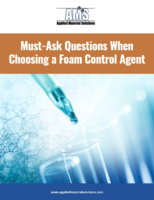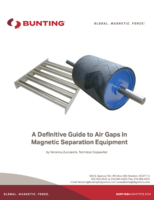Is Your Hospital or Pharmacy Still Using a Penny in a Cup?

CAS DataLoggers Makes You Fully Compliant with Joint Commission Guidelines
CHESTERLAND OHÂ – Is your healthcare organization still using the 'penny in a cup' method to monitor temperatures in your medical refrigerators and freezers? The Joint Commission has stated that this practice is now outdated and does not meet its standards—in fact, using this method your vaccines or samples could be spoiling and you may not catch it in time since the ice refreezes. For these critical life science applications CAS DataLoggers offers its Accsense temperature monitoring and alarming systems.
Some healthcare institutions continue to rely on this low-tech method, freezing a cup of water and putting a penny on top of the ice. This 'penny in a cup' is then kept in the freezer compartment of a medical refrigerator/freezer unit. The assumption is that as long as the penny stays on top, the ice has not melted and the unit has stayed within a safe temperature window.
The official Joint Commission Standards FAQ states that, "The "penny in a cup" method will not meet the intent of Joint Commission standards," for several reasons. To paraphrase the FAQ, your products themselves may already be above safe temperatures before the penny actually sinks. Second, large medical storage units, or ones with insulated freezer sections, often keep the penny afloat even though the refrigerator has warmed up. These freezer compartments are often packed with inches of ice because they have not been properly defrosted. This thick layer of freezer ice often shields the cup even while the refrigerator temperature keeps going up. Nowadays technology offers more reliable solutions.
Here's what The Joint Commission says about temperature monitoring and logging:
"Joint Commission does not specifically require temperature logs for refrigerators and freezers used for medication storage. Standard MM.03.01.01, EP2 requires that medications be stored according to manufacturer's recommendations. Additionally, EC. 01.01.01 requires that organization describes and implement processes to maintain and monitor equipment performance. If your organization chooses to use temperature monitoring to achieve this, the monitoring method must track temperature in an ongoing fashion to indicate whether or not internal temperature has deviated from the required ranges for all drugs stored."
--from the FAQ on The Joint Commission's website
So how does this affect the average clinic or hospital? First, you must decide whether or not to use temperature monitoring to measure and maintain the performance of your equipment. Most facilities choose to do so since temperature monitoring is the most direct and generally the most cost-effective way of meeting this requirement.
The next step is to choose a monitoring device that provides, at minimum, the following features:
- Logging of temperature on a periodic basis, using accurate sensors placed within the cold storage unit;
- Checking the temperature against specified upper and lower limits at a rate independent of the logging rate;
- Storing the temperature data in a securely encrypted format;
- Preventing the stored data from being altered;
- Generating alarms via email, text, or voice messaging to notify users of temperature excursions outside specified limits;
- Accepting user input for recording causes, corrective actions and preventive actions;
- Generating historical data reports that can be printed or stored electronically.
Are you looking for a plug-and-play device that's easy to install and use? The Accsense Ethernet Temperature Data Logger is the ideal solution for the monitoring needs of clinics, health departments, hospital pharmacies, and other facilities. The data logger will enable you to monitor temperature in one refrigerator or freezer and can also provide customized alarming and data storage with a service plan. This accurate temperature monitoring and alarming solution watches your temperature-sensitive product 24/7, which is especially useful after hours and on weekends. In fact the system can pay for itself by preventing just ONE disaster and subsequent loss of reputation.
Furthermore, if your facility acquires additional cold storage equipment, you can add up to two more sensor probes at a very reasonable price. The Accsense Ethernet logger can monitor vaccine fridges, regular or ultralow freezers, and even liquid nitrogen freezers and storage units. Most importantly, the Accsense Ethernet Temperature Data Logger and all other Accsense products are fully compliant with the requirements of The Joint Commission. That's the Accsense advantage.
Call CAS DataLoggers today for more information or click the link below!
For more information on our Accsense Wireless and Wired Monitoring Systems monitoring temperature, humidity and more, contact a CAS Data Logger Applications Specialist at (800) 956-4437 or visit the website at www.DataLoggerInc.com.
Contact Information:
CAS DataLoggers, Inc.
12628 Chillicothe Road
Chesterland, Ohio 44026
(440) 729-2570
(800) 956-4437
sales@dataloggerinc.com
www.dataloggerinc.com




